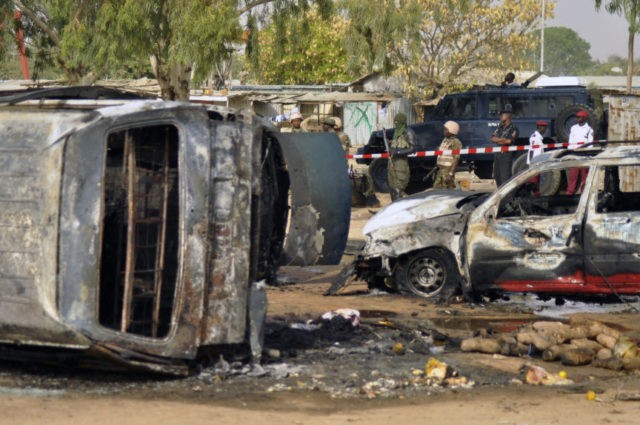The number of suicide bombings carried out by women and girls across the world on behalf of terrorist groups reached an unprecedented level last year, reveals a new study by Tel Aviv’s Institute for National Security Studies (INSS).
The vast majority of these incidents were linked to the West Africa-based jihadist group Boko Haram.
Boko Haram and other jihadist groups are known to coerce females, particularly young girls, into carrying out suicide bombings as well as urge their followers and supporters to engage in jihad and become martyrs.
INSS reports:
In 2017, 137 women took part in 61 suicide attacks in 6 countries, compared to 77 women the previous year and 118 women in 2015. About 333 people were killed during these attacks.
About 126 of the women (some 92 percent) who operated in Africa were in the service of the Boko Haram organization. There may have been additional cases of women being deployed as suicide bombers, mainly in Africa and in Iraq, that were not included in the report as a result of the reporting restrictions.
With at least 27 suicide attacks involving women and girls by April 2017, Boko Haram was already en route to dramatically exceed the 29 female suicide bombings conducted during the entire previous year.
The United Nations revealed that the group used at least 135 children as suicide bombers last year.
Overall, there were 348 terrorism-linked suicide attacks in 2017, marking the “lowest number” since 2013, points out the study. The incidents resulted in 4,310 fatalities and 6,700 people injured.
“In 2017, 348 suicide attacks were carried out in 23 countries throughout the world by approximately 623 terrorists, of whom some 137 were women and girls—the highest number of female suicide bombers since women began participating in suicide attacks,” reports INSS.
INSS notes that the Islamic State (ISIS/ISIL) remained the chief perpetrator of suicide attacks last year, reporting:
As in previous years, in 2017 the Islamic State was the leading source of suicide attacks, and was directly and indirectly responsible (through organizations that have sworn allegiance to it) for 220 suicide attacks, which amount to some 63 percent of all of the suicide attacks around the world, compared to 322 suicide attacks that it was responsible for last year, which then constituted some 70 percent.
Boko Haram has pledged allegiance to ISIS. The majority of suicide attacks reportedly took place in the Middle East, home of the Islamic State’s collapsing caliphate.
“This year too, the Middle East remained the key arena in which most of the suicide attacks occurred. Nevertheless, there was a significant drop of about 54.5 percent in suicide attacks in the region in 2017, compared to 2016, from 298 to 135, and the number of perpetrators dropped by a similar ratio,” reveals the study.
According to the report, the drop in suicide attacks in the Middle East “may be attributed” to the significant losses suffered by ISIS at the hands of the U.S.-led coalition and its allies.
Despite the overall drop in suicide bombings, the number increased in Africa and Asia, particularly in war-devastated Afghanistan.
INSS reports:
In Africa and in Asia (mainly in Afghanistan), there was a rise in the number of suicide attacks in 2017. About 101 suicide attacks were carried out in Asia (about 29 percent), compared to about 83 suicide attacks last year (about 17.5 percent), and in Africa, about 112 suicide attacks were carried out (about 32 percent of all of the suicide attacks this year), compared to about 86 suicide attacks (about 18 percent) in 2016—an increase of 30 percent.
The study also noted that the increase in suicide bombings in Africa and Asia may be linked to the Islamic State intensifying its activities in the region.

COMMENTS
Please let us know if you're having issues with commenting.